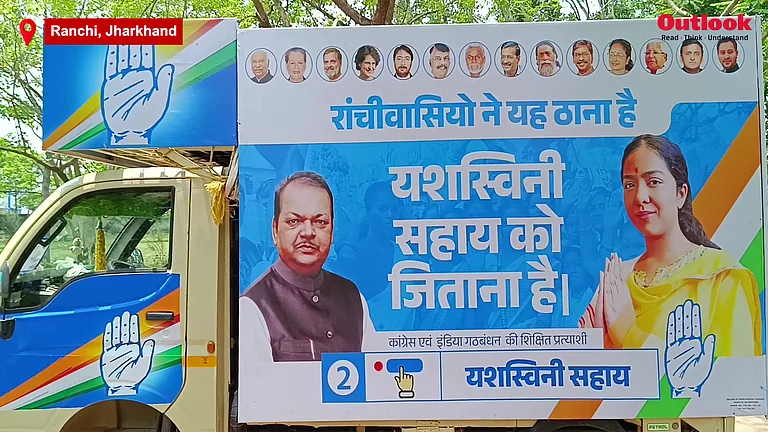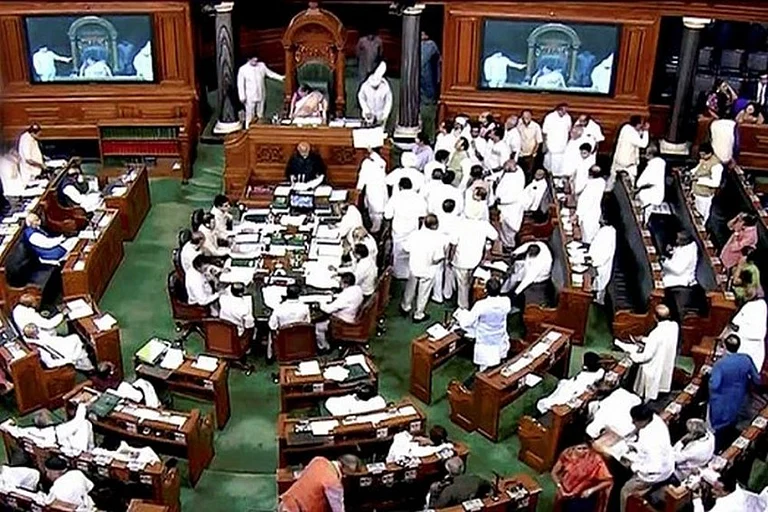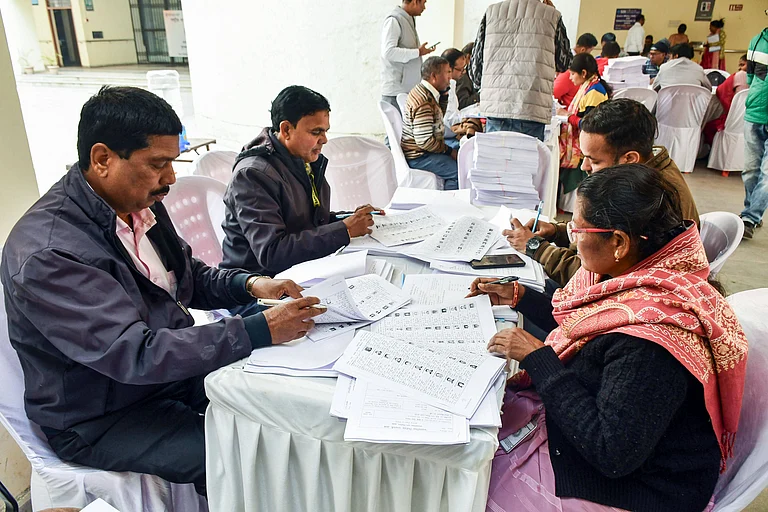Last year, in September when the Women’s Reservation Bill was passed in the Parliament, there was speculation that even before its scheduled implementation in 2029, political parties would nominate women in formidable numbers across Lok Sabha seats. However, the data from Association for Democratic Rights has shown that in the first two phases only 8 per cent of the contesting candidates were women. Although their share increased to 9 per cent, 10 per cent and 12 per cent in the subsequent phases, the jump is miniscule in contrast to the promised 33 per cent. And if one talks about women as the star campaigners of the major political parties, they may barely find any name.
Amidst this dismal representation of women in Lok Sabha seats across the country, Jharkhand is vying for a change in attitude. While Kalpana Soren, the wife of former CM Hemant Soren has taken the centre stage in Jharkhand politics since the ED arrested him, another young woman leader is emerging in Ranchi - the Congress Lok Sabha candidate Yashaswini Sahay. This is the first time that Ranchi has got a woman candidate. Earlier, like most of the Lok Sabha seats in Jharkhand, Ranchi was an electoral battleground dominated by men.
Lawyer by profession, Sahay is the daughter of senior Congress leader and former Union Minister Subodh Kanti Sahay. Though her primary identity during the early days of campaign stemmed from her father’s legacy, with time she made her own space among people, say Zubair Ahmed, a social activist and resident of Doranda, a segment of Ranchi constituency. But for Sahay, these questions of carrying the legacy or nepotism hardly matter. What concerns her is the voice of women and youth unemployment.
“Women in Ranchi have always felt left out as it is difficult for them to approach the men leaders with their specific problems. As a woman, I can sense it,” says Sahay, who earlier used to work in the sector of women and child rights. Her experience in the targeted sector is also helping her to understand women’s issues better. “We have got into an emotional bond. It is more than political,” she adds.

Emphasising the assertive and independent character of Adivasi women, the 27-year-old candidate says, “Adivasi women are very liberated. Most of them are working and earning lives. We are listening to the issues of Dalit, OBC women as well. All of them may have separate problems, but as women, they all feel left out.”
As Sahay readies herself for the long campaign trail that awaits her in the scorching heat of May, she refers to the popularity of Kalpana Soren. “Look at Kalpana ma’am and her popularity. Earlier, women used to follow their family members while voting but now they want their own political identity,” she says.

It is around 9:30 am. One can see at least 30 people sitting in the courtyard. Sahay takes time to meet each of them. “A few of them have come from NGOs who work with disabled people. They want her support if she wins the election,” one of the supporters says. With a smile always on her face, Sahay carefully listens to people's problems and responds, “Let the elections get over, we will look into it.”
As a young Congress leader, she thinks the major problem of the country is unemployment and to address it, a systematic approach needs to be taken. “Firstly, we have to control the numbers of school drop outs. Thereafter, we need to create jobs in MSME and other sectors. Alongside, we need to make our youths employable.” In her list of guarantees for Ranchi, unemployment takes the centre stage.
Though this is Sahay’s first brush with partisan politics, her opponent is BJP heavyweight Sanjay Seth who defeated her father in 2019. BJP has brought in its rank and files to campaign for Seth. Recently, Home Minister Amit Shah had done a roadshow at Chutia in Ranchi.
However, most of the Jharkhand BJP leaders including MLA C P Singh and Seth have been banking on the tropes of ‘Ram Mandir’ and ‘Bangladeshi intruders’. Against this backdrop, will it be possible for her to not step into the politics of polarisation? She responds, “There is no polarisation. They are trying to manifest it. The issues are unemployment, education, health, livelihood. When you don’t have your next meal ready on your table, religion doesn’t matter.”
Outside her house, Chanchal Kumar, a cab driver from Monitola while looking at her campaign tableau, says, “Women should be now given the baton of politics. Men politicians have miserably failed us.” The first woman candidate of Ranchi Lok Sabha is now talking to some women. There is barely any time left for campaign. Ranchi is going to polls on May 25.










.png?auto=format%2Ccompress&fit=max&format=webp&w=768&dpr=1.0)



















